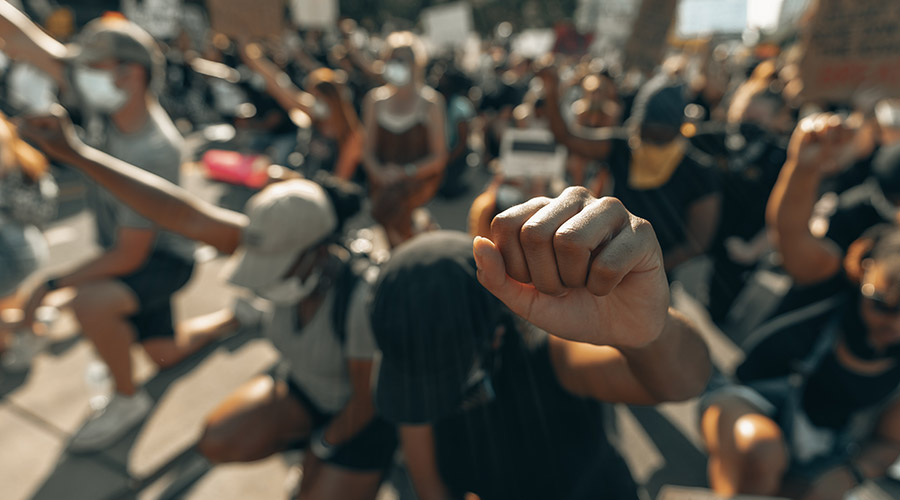While the fight for equality has been in motion for centuries, racial discrimination is still very much alive in the U.S. and throughout the world. The International Day for the Elimination of Racial Discrimination, also commonly referred to as “End Racism Day,” provides another reminder of the oppression facing minority communities and the continued necessity to address racial discrimination. Recognized on March 21st each year, the day celebrates the adoption of the Universal Declaration of Human Rights (UDHR), which proclaims that all people are entitled to the same rights and freedoms, without exception. Today, we continue to fight racism and racial discrimination, and it is important to recognize these forms of bigotry along with ways to fight for change.
The History of the International Day
Understanding Racial Discrimination
Millions of people directly experience racial discrimination throughout their lifetimes, and it is important to understand what it is and how to become an ally to stand up for those affected. Racial discrimination is when a person is treated differently from another person, solely based on their race. While the definition may seem straightforward, there are many different types of racial discrimination, or acts of racism, that people exercise and experience.
Different Types of Racism
There are four different types, or levels, of racism. Understanding each type will help everyone become a better advocate and ally to anyone who might be experiencing some form of racism.
- Personal/Internalized Racism: Most commonly seen through microaggressions, this type of racism stems from an individual’s personal beliefs, ideas and prejudices. This can cultivate responses that are racist, whether this is intentional or unintentional.
- Interpersonal Racism: This act of racism can be expressed in the forms of bullying, harassment and an individual’s personal thoughts around a certain group of people. This racism can lead to severe abuse of people of color.
- Institutional Racism: These are typically the vestiges of racist and exclusionary policies that have long been rooted in U.S. historic racist policies, racism institutions and they continue to discriminate against people of color throughout healthcare, education and other avenues.
- Structural Racism: This type of racism is seen in different laws and rules within a society that ends up putting people of color at a disadvantage, such as white privilege.
How We Can Fight Racial Discrimination
It is up to all of us to work together to combat racial discrimination. First and foremost, we must expand education – arming people with the knowledge and facts surrounding racial discrimination can help create a better world for all. America has a long history of children being victimized by racism, from Emmett Till to Trayvon Martin. That is why we must provide this education at a young age to teach children about racism throughout history and the tools that can be used to fight racial oppression. Once armed with this knowledge, it can create a more well-informed and nuanced foundation from which one can speak out against racial discrimination, while also pairing it with actions to create change.
Robert F. Smith and His Support of Equality Measures
Robert F. Smith is dedicated to uplifting people of color and their respective communities, while also fighting against racial discrimination and working toward equality for all. As the founding director and President of Fund II Foundation, Smith helps lead the direction of the organization’s efforts to create a better future for Black Americans and others from often underrepresented groups. In addition, Smith works with Southern Communities Initiative, an initiative that focuses its efforts primarily on breaking down racial barriers for Black communities across six Southern U.S. regions that are home to more than half of Black Americans nationwide.
On the educational front, Smith is Chairman of Student Freedom Initiative, an organization dedicated to helping eliminate the crushing burden of student loan debt for underserved students. The Initiative also provides resources that enable students at Historically Black Colleges and Universities (HBCUs) to make the most out of their professional and life choices. Uplifting students from these institutions helps to bridge an educational gap that has been historically perpetuated by forms of discrimination and racism.
Learn more about Smith’s efforts for equality in education by visiting Student Freedom Initiative’s website.
